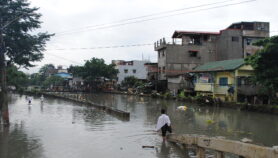By: Catarina Chagas
Send to a friend
The details you provide on this page will not be used to send unsolicited email, and will not be sold to a 3rd party. See privacy policy.
[RIO DE JANEIRO] Hurricanes in the Atlantic Ocean may become easier to predict by tracing the evolution of a sub-type of El Niño event.
El Niño (the El Niño Southern Oscillation or ENSO) is a periodic warming of the Eastern Pacific Ocean, with associated air pressure changes, that affects weather circulation in the Atlantic. Forecasters use it to predict the number and frequency of hurricanes.
But these predictions cannot usually be made before June each year because, until then, it remains uncertain whether the Pacific Ocean will have an ENSO event, a La Niña event (a cooling instead of warming) or remain neutral.
Now, researchers from the Georgia Institute of Technology (GT), United States, say that predictions can be improved by separating ENSO events into two different modes. The Eastern Pacific warming (EPW) is the conventional ENSO but in Central Pacific warming (CPW) — another type of ENSO — the warming occurs further to the west.
CPW starts its annual cycle slightly earlier than EPW, helping forecasters’ attempts to predict cyclone activity for the upcoming season, Hye-Mi Kim, lead author of the study and a research scientist at GT, told SciDev.Net.
"This is a new way of looking at the El Niño Southern Oscillation (ENSO) phenomenon. The authors have shown that the CPW does not suffer from the ‘predictability barrier’ associated with the classical El Nino that makes it hard to forecast well ahead," Greg J. Holland, a researcher at the National Center for Atmospheric Research, United States, told SciDev.Net.
Kim and colleagues also say that CPW events are becoming more frequent at the expense of EPW events. The reasons for this are unknown but the researchers warn that because CPW events are associated with an increase in hurricane activity — contrary to normal ENSO events — the rise could mean more hurricanes, particularly for the Caribbean and the Gulf of Mexico.
Co-author Peter Webster, a professor at GT, said in a press release that this rise in hurricane activity is because CPW events occur in the Central Pacific where warming is associated with a higher storm frequency.
The research was published in Science earlier this month (3 July).
References
Science 325, 77 (2009)













